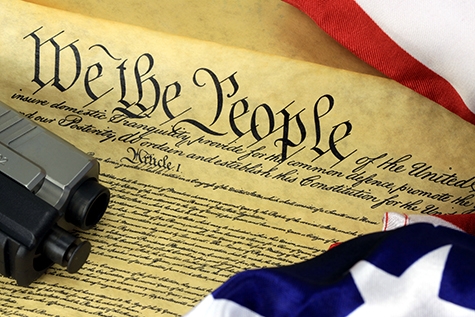
When we look globally, or at least at the Western world, the issues of gun control is largely an American problem. Our fine neighbours to the south have taken gun culture to levels that are unrivalled anywhere in the developed world. Citing the Second Amendment, the 200-odd-year American grudge against tyrannical leadership has fostered a race for citizens to arm themselves with increased firepower.
While it’s an American problem, it has become a Canadian issue, too. Like many American failures and successes, due to the influence of our neighbours both directly through policy and through example and media, Canadians must wade into the discussion.
Case in point: the recent incident involving Niverville Collegiate Institute. The local reality is that gun control laws and a moderate approach to civilian-owned firearms has resulted in some of the lowest statistics of gun violence anywhere in the developed world. But when mass shootings are seen on the media, their example provides a template for young individuals seeking attention. Whether a joke made in extremely poor taste or a cry for help, people are creating “shock value”—and throwing firearms into the mix.
It’s very un-Canadian. As the True North, our national expression with firearms has always been—and always should be—tied to our battle with the elements and wildlife. The gun culture that has existed here is rarely about self-defence. Rather, it’s about filling out a tag next hunting season and a freezer full of venison.
The influence is also seen in the community as heightened sensitivities give way to reactions we’ve never seen before. The authorities are having to develop policies that are prudent, wary, but likely somewhat out of step with the actual realities of our Canadian situation. This is not to say that it’s wrong—better safe than sorry—but we should remember that this is driven less by local realties and more by the international examples we see.
So we wade into the discussion.
The facts are correct in that guns don’t technically kill people (people kill people), but firearms, especially assault-style rifles or modified semi-automatics, allow these people to kill with lightning efficiency and maximum carnage. The right-wing solution is to put more arms in the hands of good people, because the idea of restriction is an assault on the sacred cow of the citizen’s right to arms. It’s akin to two competitors progressively reducing their prices to take market share, and ultimately both companies shut their doors for lack of profit. An arms race is a race that is never won. The Cold War taught us this, too.
So we ask, why allow these assault rifles to be sold? The answer is clear and simple: this is not a matter of civil defence but entertainment, pure and simple. Given the chance, I suspect many of us would enjoy firing off some automatic rounds at a gun range and seeing the targets get blown to bits. Like our love for action movies and fireworks, we’re entertained by destruction. There are even destruction rooms popping up where, for a fee, you can spend time bashing stuff with a baseball bat.
Entertainment, pure and simple… but not self-defence.
Once we recognize that the argument for these types of guns is just that—“for the fun of it”—the discussion about control becomes less taboo.
The invention of the modern firearm was a huge advancement in technology. Guns have enabled many families to put food on their table and settlers to tame a wild frontier. But humans are unique in their ability to take a tool of good and find the most destructive way to use it. I have hope that common sense may come back into the discussion by lawmakers in the U.S. Congress. A reasonable stance can be found.
But as long as the American public allows their politicians to use the people themselves as tools, and gun control as a wedge issue for political gain, votes and influence will continue to be bought with the blood of human lives lost.




















